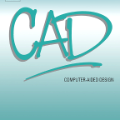Polycube-maps are used as base-complexes in various fields of computational geometry, including the generation of regular all-hexahedral meshes free of internal singularities. However, the strict alignment constraints behind polycube-based methods make their computation challenging for CAD models used in numerical simulation via Finite Element Method (FEM). We propose a novel approach based on an evolutionary algorithm to robustly compute polycube-maps in this context. We address the labeling problem, which aims to precompute polycube alignment by assigning one of the base axes to each boundary face on the input. Previous research has described ways to initialize and improve a labeling via greedy local fixes. However, such algorithms lack robustness and often converge to inaccurate solutions for complex geometries. Our proposed framework alleviates this issue by embedding labeling operations in an evolutionary heuristic, defining fitness, crossover, and mutations in the context of labeling optimization. We evaluate our method on a thousand smooth and CAD meshes, showing Evocube converges to valid labelings on a wide range of shapes. The limitations of our method are also discussed thoroughly.
翻译:在计算几何的各个领域中,多立方体图谱作为基础组合法使用,包括生成不附带内部奇点的常规全赫异构体。然而,基于多立方体方法的严格校准限制使其计算在通过有限元素法(FEM)进行数字模拟时使用的 CAD 模型具有挑战性。我们提出了一种基于进化算法的新办法,以在此背景下强有力地计算多立方体图。我们处理标签问题,目的是通过在输入时为每个边界面指定一个基轴来预先计算多立方体对齐。以前的研究描述了通过贪婪的地方固定开始和改进标签的方法。然而,这种算法缺乏稳健性,往往会与复杂地理特征的不准确解决方案相融合。我们提议的框架通过将标签操作嵌入进化超超超导体法、确定健身、交叉和突变法来缓解这一问题。我们用1000个光滑和CADmets来评估我们的方法,显示Evocube在广泛形状上的一致。



